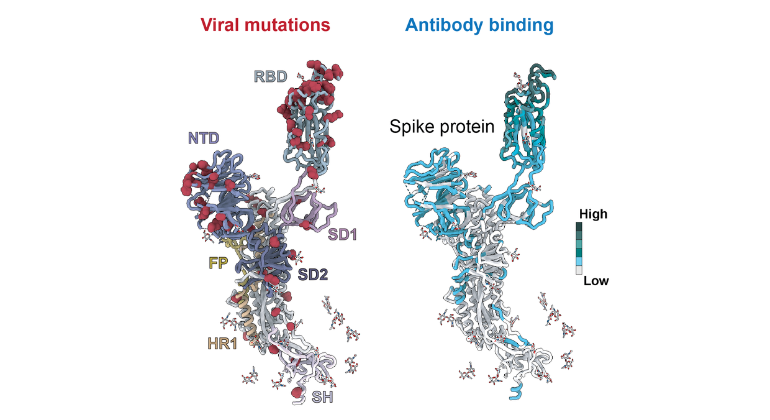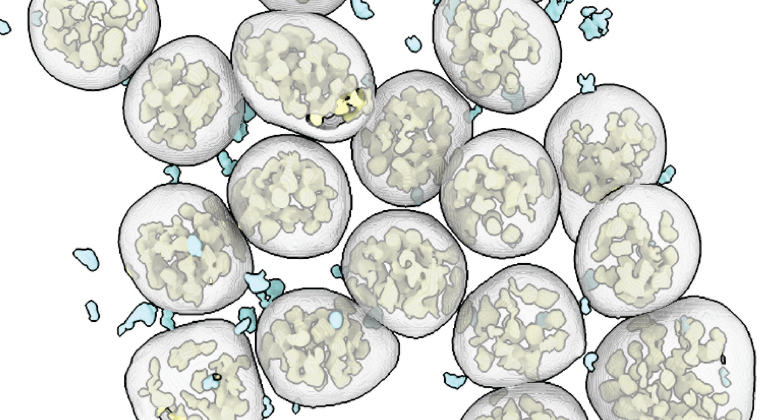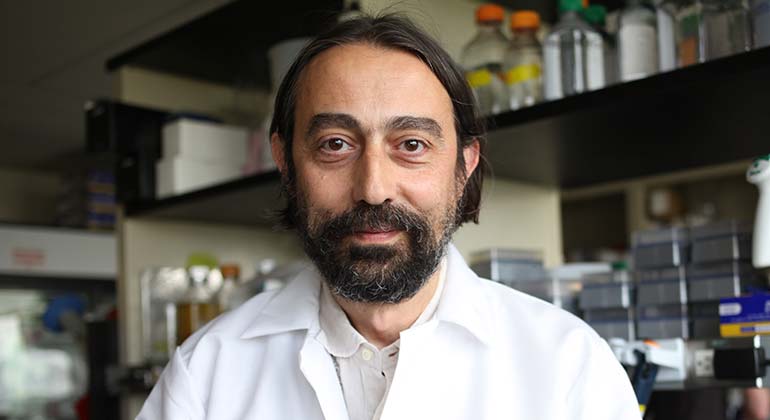National Institutes of Health Awards Mount Sinai Contract to Further Influenza Research
Award will support pandemic preparedness, advancing the understanding of flu biology.
Seasonal influenza causes approximately 30,000 deaths yearly in the US, despite the availability of vaccines and antivirals. During pandemic years, these numbers can increase significantly. To insure pandemic preparedness, the National Institutes of Health has awarded $26 million to five institutions, including the Icahn School of Medicine at Mount Sinai. The multimillion dollar award is part of an international collaboration of Centers of Excellence for Influenza Research and Surveillance (CEIRS) network.
Adolfo García-Sastre, PhD, Director of the Global Health and Emerging Pathogens Institute at the Icahn School of Medicine at Mount Sinai, will serve as principal investigator for the Center for Research on Influenza Pathogenesis (CRIP), one of the five centers.
To head off flu pandemics, researchers at Mount Sinai will look at human exposure¬ airborne of direct contact transmission, and the transmission of the virus between animals and human. "We are thrilled to be part of an international collaboration that will collect samples from around the globe," said Dr.García-Sastre. "Researchers from the far corners of the world will send samples collected from animals with a swab and transport them to laboratories at Mount Sinai and other institutions." (A full list of institutions participating in the contract appears at the bottom of this release.)
The Icahn School of Medicine at Mount Sinai team is set to conduct animal surveillance studies, including surveys of marine animals and wild birds in the Atlantic region. This information will shed light on virus evolution in animal reservoirs. Basic research will be performed at Mount Sinai's microbiology and genetics laboratories, as well as labs within this network. The focus of the research will include analyses of virus-host interactions, with the goal of determining why some influenza virus types cause more serious disease than others.
"What we hope to provide is basic understanding of the biology and transmission of novel influenza viruses so that the World Health Organization and the Centers for Disease Control and Prevention may develop the best countermeasures when an outbreak occurs."
Dr. García-Sastre added, "We are grateful to the National Institute of Allergy and Infectious Diseases [part of the National Institutes of Health] for its generous support of this work. We hope that with new knowledge, better vaccines to prevent transmission may be developed."
Other members of the Center for Research on Influenza Pathogenesis, at the Icahn School of Medicine at Mount Sinai, include Peter Palese, PhD, Professor and Chairman of Microbiology, Megan Shaw PhD, Ana Fernandez-Sesma PhD, Nicole Bouvier MD, Harm van Bakel PhD, Florian Krammer PhD, Randy Albrecht PhD, and Melissa Uccellini PhD. CRIP collaborators also include investigators from the following institutions: University of Maryland; University of Wisconsin-Madison; MIT; University of California, Davis; University of Alaska, Anchorage; Erasmus Medical Center, The Netherlands; University of Cambridge, UK; Catholic University of Chile; and Instituto Nacional de Investigación y Tecnología Agraria y Alimentaria, in Madrid, Spain.
The CEIRS Network will have a worldwide reach, with established or planned collaborations at more than two dozen sites in the United States, Asia, South America, Europe, and Australia.
The Mount Sinai team previously received a 2007 award from the National Institutes of Health's National Institute of Allergy and Infectious Diseases. With that award, the team characterized the pandemic H1N1 virus of 2009.
About the Mount Sinai Health System
Mount Sinai Health System is one of the largest academic medical systems in the New York metro area, with 48,000 employees working across seven hospitals, more than 400 outpatient practices, more than 600 research and clinical labs, a school of nursing, and a leading school of medicine and graduate education. Mount Sinai advances health for all people, everywhere, by taking on the most complex health care challenges of our time—discovering and applying new scientific learning and knowledge; developing safer, more effective treatments; educating the next generation of medical leaders and innovators; and supporting local communities by delivering high-quality care to all who need it.
Through the integration of its hospitals, labs, and schools, Mount Sinai offers comprehensive health care solutions from birth through geriatrics, leveraging innovative approaches such as artificial intelligence and informatics while keeping patients’ medical and emotional needs at the center of all treatment. The Health System includes approximately 9,000 primary and specialty care physicians and 10 free-standing joint-venture centers throughout the five boroughs of New York City, Westchester, Long Island, and Florida. Hospitals within the System are consistently ranked by Newsweek’s® “The World’s Best Smart Hospitals, Best in State Hospitals, World Best Hospitals and Best Specialty Hospitals” and by U.S. News & World Report's® “Best Hospitals” and “Best Children’s Hospitals.” The Mount Sinai Hospital is on the U.S. News & World Report® “Best Hospitals” Honor Roll for 2025-2026.
For more information, visit https://www.mountsinai.org or find Mount Sinai on Facebook, Instagram, LinkedIn, X, and YouTube.

Scientists Uncover How COVID-19 Variants Outsmart the Immune System
Nov 21, 2025 View All Press Releases



